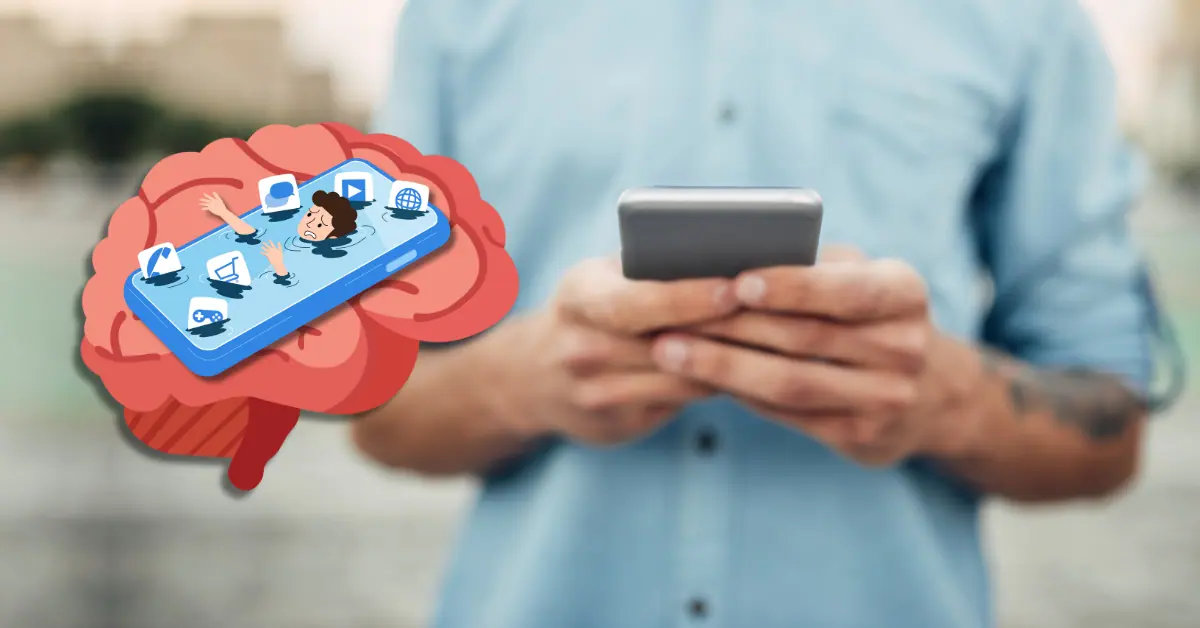We all know that dating apps have exploded in popularity in the last five years—they’ve actually reshaped how singles looking for love and romance (and everything in between) connect and interact in the dating world. With a quick click or a swipe, users can meet possible romantic partners. And while this is the easiest it has ever been to meet eligible daters, it comes with a pretty serious cost for some: dating app addiction.
Like with most things, there needs to be a balance—too much of anything tends to make it swing from fun to unhealthy or even dangerous. Pertaining to these platforms, dating app addiction is the compulsive need to use these apps, usually at the expense of IRL interactions and responsibilities. It’s actually more common than you might think it would be, which is why you need to know the warning signs!
If you are aware of dating app addiction and are able to recognize the signs when you’ve gone over the edge from casual use to dependence, you can pull back and find a healthy balance. And if you can’t do that on your own, there is help out there! Let’s get into everything about dating app addiction so you are prepped to use them in a balanced way.
The Popularity and Appeal of Dating Apps
Since dating apps have become a staple in modern dating culture, let’s break down why these platforms are so popular, focusing on their convenience and accessibility, the big pool of potential matches they provide, and the gamification elements they incorporate.
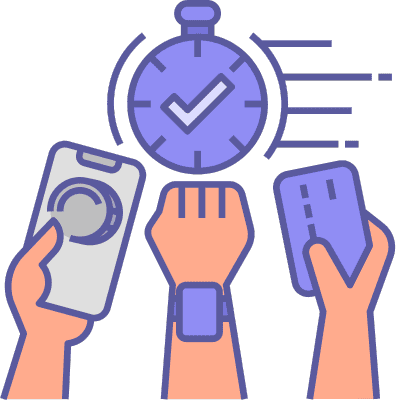
Convenience and Accessibility
Obviously, one of the biggest (and best) draws of dating apps is their sheer convenience. Unlike the olden times, where most dating methods mean a pretty big time commitment and a lot of effort, dating apps mean that users can browse profiles and connect with potential matches day or night. This flexibility is a boon for not just busy people who might not have the time to meet new people through conventional means but for all of us. You can browse through profiles during a work break, on public transit—basically, anywhere with an internet or WiFi signal. This makes the whole dating process so much more accessible and time-efficient!
Furthermore, the geographic flexibility that comes with dating apps breaks down location barriers—singles can connect with others outside their immediate area, expanding their potential dating pool exponentially and increasing the chances of finding a compatible romantic partner. This aspect is really beneficial for people who live out of the way in rural areas, smaller towns or for those who travel a lot, as it means they can meet people they would have never crossed paths with IRL. It makes dating life easier, period.
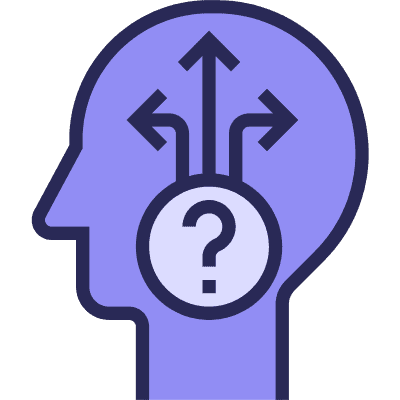
Big Pool of Potential Matches
Dating apps provide access to a huge pool of potential partners, far beyond what one might encounter in everyday life. This extensive selection is one of the most attractive aspects of online dating. Traditional dating usually limits people to their own social circles, workplaces, or local hangouts, but dating apps open up an endless world of possibilities. Singles can filter potential matches based on various criteria, like age, interests, and values, meaning they get a tailored and effective search compatibility-wise.
The ability to be selective is another important advantage—users can read dating profiles, look at photos, and see answers to certain questions that help gauge true compatibility. This level of detail aids people in making the best decisions about who they want to pursue, leading to better matches and more better interactions. Additionally, the diversity offered by dating apps introduces users to people from different backgrounds and cultures, adding to the dating experience with new perspectives.
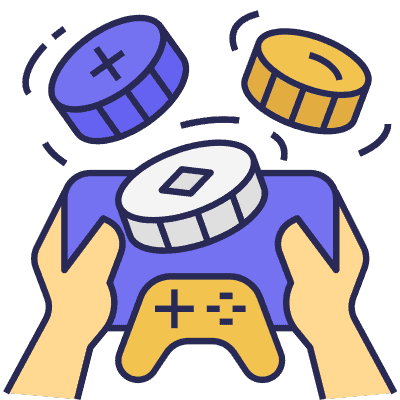
Gamification Elements
Gamification is another factor that improves the appeal of dating apps for some daters. Most platforms incorporate elements commonly found in games, like swiping left or right to reject or accept profiles, earning rewards for engagement, and using algorithms to keep users hooked. These features create an engaging and addictive user experience, making the process of finding a match feel more like a fun game rather than a boring task.
The design of these apps often taps into psychological triggers, providing users with a sense of achievement and satisfaction each time they receive a match or a message. This dopamine boost is highly motivating, encouraging users to keep coming back and staying active on the platform. And although gamification does make the dating process more enjoyable, it can also lead to addictive behaviors if not handled carefully!
Signs of Dating App Addiction
No one is arguing that dating apps have made the dating game easier when it comes to connecting with others. But because they are so much easier than walking the streets looking for a match, it could mean people will start to use them excessively, which can then lead to problematic behaviors. That’s why recognizing and understanding the signs of dating app addiction is so important for having a healthy balance!
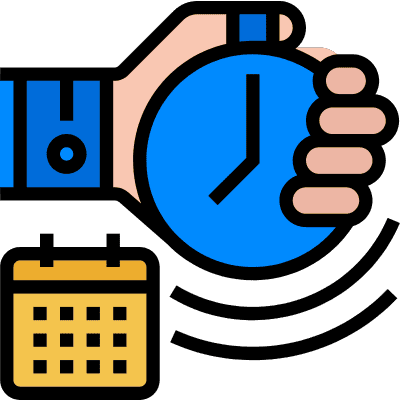
Excessive Time Spent on Apps
One of the most evident signs of dating app addiction is spending an excessive amount of time on these platforms. This behavior looks like checking the app frequently throughout the day, extending browsing sessions late into the night, or feeling like you have to respond to messages immediately.
These kinds of habits can consume a big chunk of one’s day, detracting from other important activities and responsibilities. Studies have found that the constant availability and instant feedback from matches can make these apps particularly engaging and hard to put down.
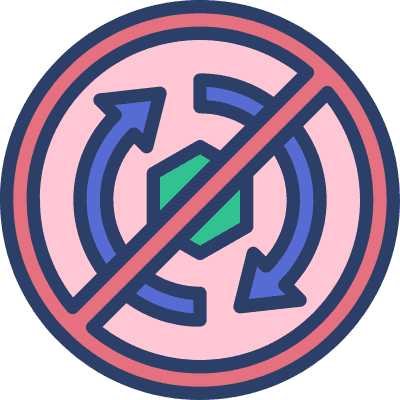
Neglecting Other Areas of Life
When the use of dating apps starts to interfere with daily responsibilities and activities, it signals a problem. This might manifest as missing work or school deadlines, avoiding social interactions with friends and family, or neglecting hobbies and interests.
The focus on the app can overshadow real-life commitments, leading to an imbalance that affects overall well-being. If you find yourself staying in to swipe instead of sticking to the plans you had with friends or attending a party you RSVP’d “yes” to, you might have a dating app addiction.
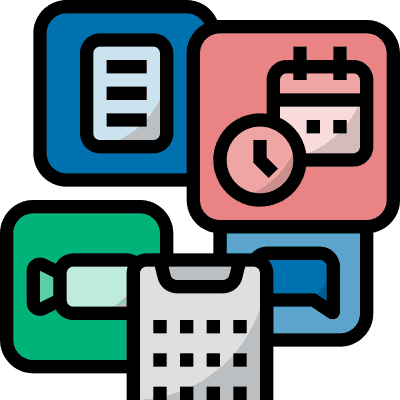
Constant Checking and Swiping
A compulsive need to check and swipe on dating apps throughout the day is another clear indicator of addiction. This behavior includes reaching for the phone before you even brush your teeth in the morning, during meals, or even in the middle of the night.
The gamified nature of a lot of dating apps, like swiping mechanics and notifications, can make them highly engaging and difficult to resist. This constant checking can become a reflexive action, driven by the desire for new matches or interactions, turning into a cycle that is hard to break.
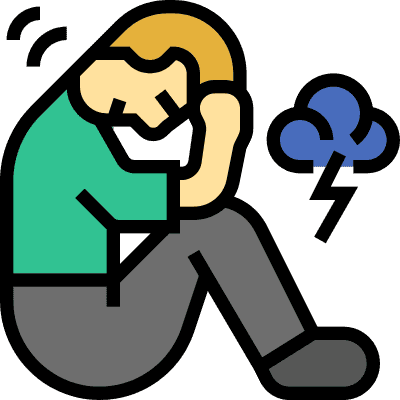
Feelings of Anxiety or Low Self-Esteem When Not Using Apps
Experiencing anxiety or a dip in your self-esteem when not engaging with dating apps is a big red flag, too. Users can experience restlessness, irritability, or down in the dumps when they are not active on the app.
This behavior stems from the validation that comes from matches and interactions, creating a dependency on the app for self-worth. The constant need for reassurance can lead to an unhealthy reliance on the platform, which affects emotional and mental health.

Difficulty in Forming Real-World Connections
An over-reliance on dating apps can hinder the ability to form connections in real life. Users may feel more comfortable interacting behind a screen, leading to social anxiety and a diminished capacity for face-to-face interactions.
This preference for online communication can make it challenging to build and keep up with real-world relationships, impacting social skills and interpersonal development.
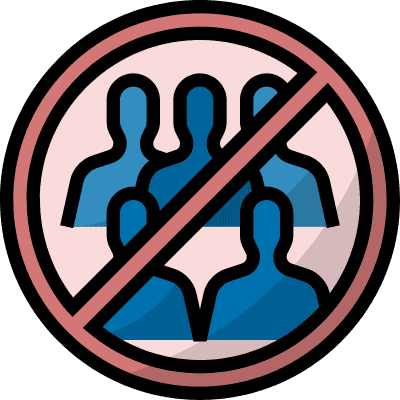
Prioritizing Quantity Over Quality in Matches
Focusing on the number of matches rather than the quality of connections is another sign of addiction. Dating apps’ gamified aspects encourage users to accumulate matches like badges of honor, sometimes at the expense of genuine interactions.
This behavior can result in shallow engagements and a lack of real connections as users become more concerned with the quantity of their matches rather than building real relationships.
Psychological Factors Contributing to Addiction
Dating app addiction is not just about spending too much time swiping left and right. Several psychological factors underpin this behavior, making it essential to understand the deeper reasons behind it. These factors include the fear of missing out (FOMO), the dopamine hits from matches and messages, validation-seeking behavior, and the avoidance of real-world rejection.
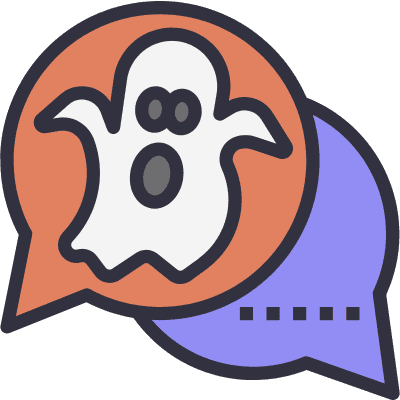
Fear of Missing Out (FOMO)
Fear of Missing Out (FOMO) is a big driver behind the compulsive use of dating apps. FOMO is the anxiety that others are having fun without you, which can be particularly powerful in the context of dating. When users see potential matches or interactions happening all of the time, they feel an urge to keep checking the app to make sure they don’t miss out on a great opportunity.
This constant need to stay on top of things can turn into excessive use and dependency on the app, as people become preoccupied with what they might miss if they aren’t constantly online and engaged.
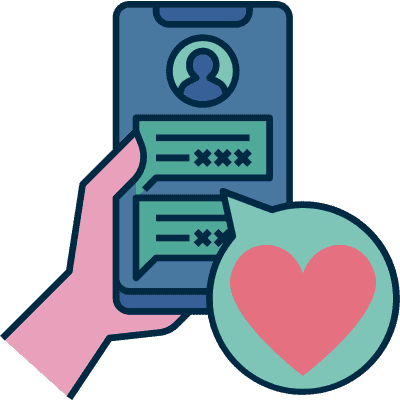
Dopamine Hits from Matches and Messages
The role of dopamine in addiction is well-documented, and dating apps are designed to exploit this neurochemical to keep users hooked. Each match or message triggers a release of dopamine, creating a pleasurable sensation. This reward system is similar to what occurs with other types of addictive behaviors.
The intermittent reinforcement—never knowing when the next match will come—keeps users engaged and coming back for more. The anticipation and excitement associated with potential matches can become addictive, driving compulsive use of the app.
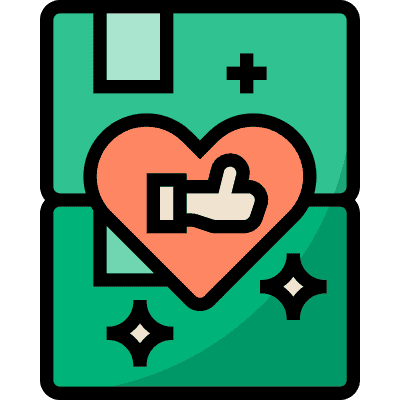
Validation Seeking Behavior
Validation seeking is another big factor in dating app addiction. For many users, the attention received from matches and messages serves as a form of validation. This external approval can boost self-esteem and provide a sense of worth, especially for those who might struggle with self-confidence in their offline lives.
The desire for validation can lead users to prioritize their online interactions over real-life activities, reinforcing the addictive behavior as they look for more and more approval from the app.
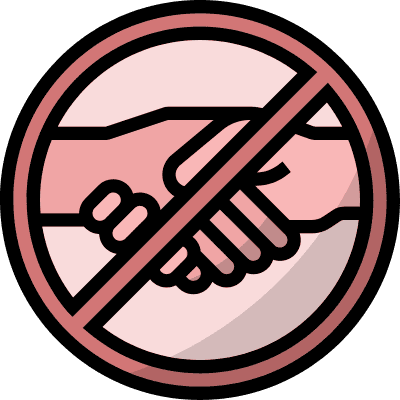
Avoidance of Real-World Rejection
Dating apps provide a kind of protective shield from the immediate sting of rejection that happens in face-to-face interactions. This avoidance of real-world rejection is a major psychological factor contributing to addiction. Online, users can craft their profiles, choose the most flattering photos, and when and how to respond, creating a controlled environment that feels way safer than real-life dating.
This control reduces the risk of immediate rejection, making the app a far more attractive option for those who fear face-to-face interactions. Over time, this avoidance can become a habit, making it difficult to form connections in the real world.
The Impact of Dating App Addiction
Dating app addiction is a pressing issue that can have extensive repercussions on mental health, social life, and even financial stability. Understanding these impacts can help users see when their habit is becoming harmful and take steps to manage or change their behavior.
Mental Health Consequences
The accessibility and convenience of dating apps can come with mental and emotional health issues, like the following:

Increased Anxiety and Depression
One of the primary mental health issues associated with excessive use of dating apps is an increase in anxiety and depression. Users often experience heightened stress due to the constant need to check for new matches and messages. This behavior creates a cycle of dependency and emotional distress, as interactions may not always meet expectations. Studies have shown that individuals who use dating apps frequently report higher levels of psychological distress, anxiety, and depression compared to non-users. The pursuit of validation through these platforms exacerbates these mental health issues, as users seek continuous reassurance through matches and messages.
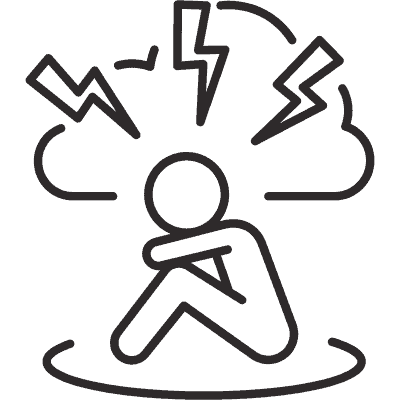
Lowered Self-Esteem
Dating apps can greatly impact self-esteem. The validation received from matches and messages can become a primary source of self-worth for some users. When the number of matches or positive interactions is low, users may experience feelings of inadequacy and lowered self-esteem. This constant comparison to others and seeking validation online can diminish one’s confidence in real-world interactions. The culture of instant judgment based on appearance further contributes to these feelings, making users overly critical of themselves and reliant on external approval for self-esteem.
Social Life Disruption
Beyond mental health, dating app addiction can severely disrupt social life, affecting productivity and even leading to financial issues. These disruptions can impact various aspects of daily living!

Decreased Productivity at Work or School
The compulsion to frequently check dating apps can distract users from their work or studies, leading to decreased performance and missed deadlines. The mental preoccupation with online interactions reduces focus and efficiency in completing tasks, causing a noticeable decline in productivity. This constant distraction can have long-term effects on career progression and academic success as users struggle to balance their responsibilities with their online activities. This decrease in productivity is often compounded by the stress and anxiety caused by constant app use.

Potential for Financial Strain
Almost every single dating app has premium features that promise better matches or increased visibility to other users. For those addicted to these platforms, the temptation to pay for these features can lead to financial duress if they shouldn’t be spending that money on a platform. Additionally, the costs associated with frequent dating, like dining out and entertainment, can really add up, putting further pressure on one’s finances. This financial burden adds to the stress and anxiety already associated with dating app addiction, creating a vicious cycle of dependency and economic strain.
Addressing the Impact
To mitigate the negative impacts of dating app addiction, daters should consider implementing the following strategies into their use:
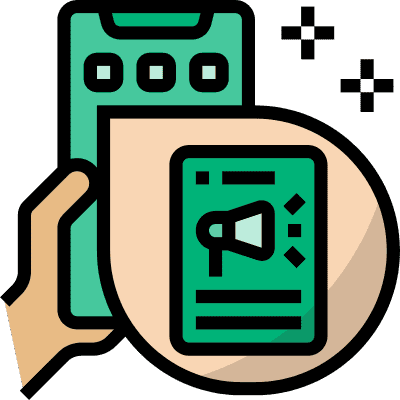
- Set Usage Limits: Establish specific times for using dating apps and adhere to these limits to avoid compulsive checking.
- Engage in Offline Activities: Focus on hobbies and interests that do not involve screens. This can help build self-esteem and provide a healthy distraction from apps.
- Seek Professional Help: If dating app addiction severely impacts your life, consider talking to a therapist. They can provide strategies to manage compulsive behaviors and address underlying issues such as anxiety and low self-esteem.
- Prioritize Real-Life Interactions: Make a conscious effort to build and maintain relationships in the real world. Face-to-face interactions can help improve social skills and reduce the reliance on online validation.
Understanding the psychological factors contributing to dating app addiction and recognizing its impacts can help individuals take steps to create a healthier relationship with these platforms and maintain a balanced life. By addressing these issues, users can enjoy the benefits of dating apps without letting them take over their lives.
Recognizing Personal Patterns and Triggers
Understanding personal patterns and triggers is super important for addressing and managing dating app addiction. Finding out what prompts excessive use can help you develop strategies to regain control. Below are some practical methods you can try!
Self-Assessment Questionnaire
Self-assessment questionnaires are a great way to get a good insight into your dating app usage. These tools include questions that encourage you to think about your behavior, motivations, and any emotional effects of using dating apps. You can make your own self-assessment questionnaire by following the tips below!
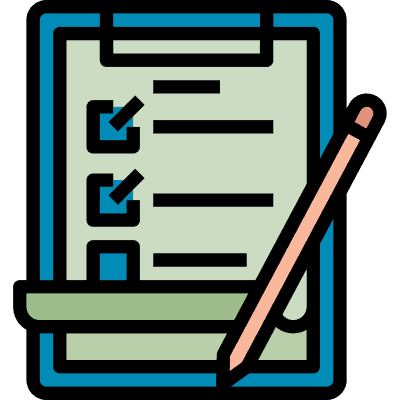
- Identify Key Areas: Focus on aspects such as the frequency of use, emotional states before and after app usage, and the impact on daily life. Sample questions can include things like:
- How often do you check dating apps daily?
- Do you feel anxious or stressed if you can’t check the app?
- How does using the app affect your mood and self-esteem?
- Analyze Responses: After answering the questions, consider your responses to spot patterns. You might notice specific triggers or times of day when you are more likely to use the app excessively.
- Adjust Behavior: Use what you’ve learned to make adjustments. For example, if you use the app more when feeling lonely, find alternative activities to engage in during those times.
Regularly conducting self-assessments can help you stay aware of your usage patterns and address problematic behaviors.
Tracking App Usage Time
Monitoring the time you spend on dating apps can provide concrete data about your habits. Most smartphones come with built-in features for this purpose, or you can even download specialized apps. To track your usage time, do the following:

- Use Built-In Tools: Most smartphones have settings that track app usage. For example, iOS devices have Screen Time, and Android devices have Digital Wellbeing. These tools show how much time you spend on each app daily and weekly.
- Install Usage Tracking Apps: Apps like RescueTime or Moment can provide detailed information about your app usage. They categorize your time spent on different activities and highlight trends.
- Set Limits and Reminders: Use these tools to set daily app usage limits. Setting reminders when you exceed your limits can help you stay mindful of your goals.
- Review Weekly Reports: Review the reports regularly to better understand your usage patterns. Look for spikes in usage and determine what might have triggered those increases.
By systematically tracking your app usage, you can become more cognizant of your engagement levels and take steps to reduce it if necessary.
Identifying Emotional States That Lead to Excessive Use
Knowing any emotional triggers that lead to excessive dating app use is also important for addressing addiction. Emotions like loneliness, boredom, or stress can drive people to turn to dating apps for that quick and easy dopamine hit. To identify and manage these emotional states:
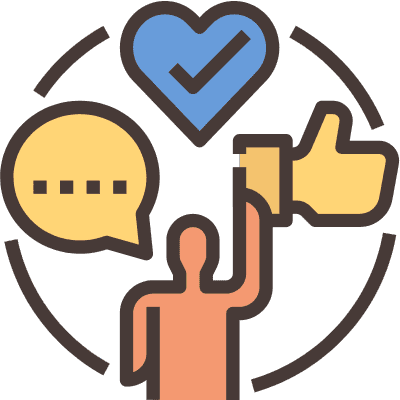
- Keep a Mood Journal: Track your emotional states throughout the day and note when you use dating apps. Apps like Daylio or Moodnotes can help you log your moods and correlate them with your app usage. By reviewing these entries, you can identify patterns in your behavior.
- Recognize Triggers: Pay attention to specific events or feelings that prompt you to use dating apps. For instance, you might notice that you turn to the app when feeling lonely or after a stressful day at work.
- Develop Coping Strategies: Once you’ve identified your triggers, develop healthier coping mechanisms. For example, if you use dating apps when bored, find alternative activities like reading, exercising, or doing a hobby you love.
- Mindfulness and Meditation: Practices like mindfulness and meditation can help you become more aware of your emotional states and reduce the impulse to use dating apps as a coping mechanism. Apps like Calm and Headspace offer guided meditations specifically designed to manage stress and anxiety.
- Get Support: Talking to a therapist can also be beneficial. They can help you explore deeper emotional issues that might be driving your addiction and provide strategies to manage these emotions.
By combining these methods, you can better understand the emotional triggers behind your dating app use and develop healthier habits to manage them.
Strategies for Finding Balance
Finding a healthy balance in dating app usage involves implementing various strategies that encourage mindful use and promote real-life connections. Below are some practical approaches to get this balance.
Setting Time Limits and Boundaries
A good way to manage dating app usage is by setting specific time limits. This approach helps prevent excessive use and ensures that other important activities and responsibilities are not neglected. Here are some methods to consider:

- Using Built-In Tools: Set daily time limits for specific apps that send notifications when you approach your limit so you stay aware of your usage.
- Third-Party Apps: Apps like Space, QualityTime, and AppDetox allow users to set custom limits and receive alerts when they exceed their set time. These apps also provide detailed reports on app usage, which can help identify patterns and adjust behaviors accordingly.
- Scheduling Breaks: Allocate specific times during the day when you can check dating apps. For example, limit your usage to 30 minutes in the morning and 30 minutes in the evening. This structure helps integrate app usage into your routine without letting it dominate your day.
Implementing App-Free Days or Periods
Taking breaks from dating apps can help reduce dependency and encourage you to engage more with the real world. Consider the following approaches:
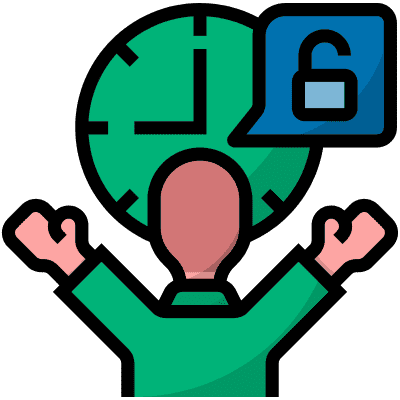
- Digital Detox Days: Designate certain days of the week as app-free days. Use this time to focus on offline activities and social interactions. This practice can help break the habit of constant checking and reduce the psychological reliance on these apps.
- Scheduled Downtime: Use features like Apple’s Downtime or Android’s Focus Mode to block access to dating apps during certain hours of the day. This can be particularly useful during work hours or before bedtime to ensure that app usage does not interfere with productivity or sleep.
Focusing on Quality Over Quantity in Matches
Putting your energy into meaningful connections over the number of matches you get will improve your dating experience and also cut back on the compulsive need to swipe until the cows come home.
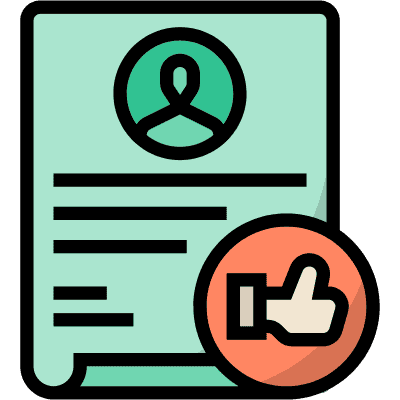
- Set Criteria for Matches: Establish clear criteria for what you are looking for in a match. Focus on profiles that align with your values and interests rather than swiping indiscriminately. This approach encourages more thoughtful interactions.
- Engage More Deeply: Instead of quickly moving on to the next match, spend more time getting to know your current matches. Engage in meaningful conversations and consider meeting in person sooner rather than later to see if there is real-world compatibility.
Cultivating Offline Social Connections and Hobbies
Building a satisfying and happy life outside of dating apps is really important for keeping a balance. Here’s how you can cultivate offline interests:
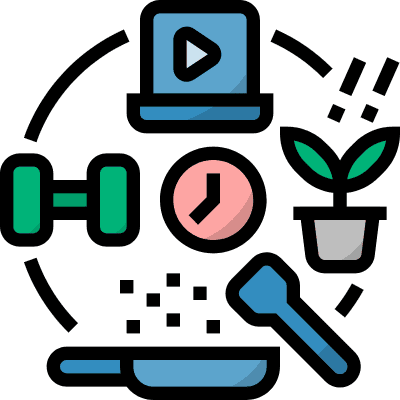
- Pursue Hobbies: Dedicate time to hobbies and things that you enjoy doing. Whether it’s joining a sports team, taking a class, or exploring anything that sparks joy, taking part in activities offline can better your life and cut down on the reliance on dating apps.
- Strengthen Existing Relationships: Spend quality time with friends and family. Strengthening these bonds gives you good emotional support and reduces the need to seek validation from dating apps.
- Join Social Groups: Take part in community events or join clubs that are related to your interests! This will expand your social circle and provide opportunities to meet new people in person, decreasing the need to rely solely on dating apps for all of your social interaction.
Practicing Mindfulness and Self-Reflection
Mindfulness and self-reflection can make you more aware of your dating app usage and its impact on your life. You can try the following to get into a mindful state of mind:

- Mindfulness Apps: Use mindfulness and meditation apps like Calm, Headspace, or Forest. These apps can help manage stress and anxiety, making it easier to resist the urge to constantly check dating apps.
- Dating Journaling: Keep a dating journal to document your feelings and experiences related to dating app use. Writing about your emotions gives you clarity and helps you understand any underlying reasons for your app usage.
- Regular Self-Check-Ins: Periodically assess your relationship with dating apps. Ask yourself questions like: Are these apps helping me meet my dating goals? How do I feel after using them? This practice can assist you in staying mindful of your usage and making necessary changes if need be.
Healthy Approaches to Online Dating
With the right mindset and strategies, online dating will lead to great connections! Below are the healthiest approaches to make sure you make the most out of your time on the apps!
Defining Clear Goals and Intentions
Knowing exactly what you want from online dating is the first step to a healthy experience—clarity helps you steer clear of any unnecessary stress and connect with people who have the same dating goals as you do.
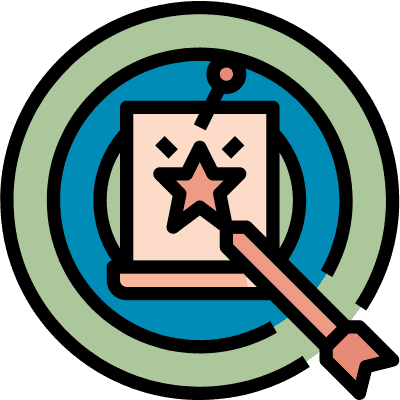
- Know What You Want: Think about what you hope to achieve. Are you looking for a serious relationship, casual dating, or a brief fling? Being clear about your goals will guide your interactions and help you communicate your intentions to potential matches. This honesty prevents misunderstandings and sets the foundation for genuine connections.
- Be Honest with Yourself: Recognize your needs and boundaries. This self-awareness will help you choose the right matches and maintain your well-being throughout the process. Being true to yourself means not compromising on your core values just to fit into someone else’s expectations. Authenticity attracts like-minded individuals who respect and share your goals.
Creating a Genuine Dating App Profile
Your dating profile is your introduction, your “Hi!” to potential matches, so it should authentically represent who you are. A genuine profile attracts the right kind of attention and lays the groundwork for meaningful interactions.
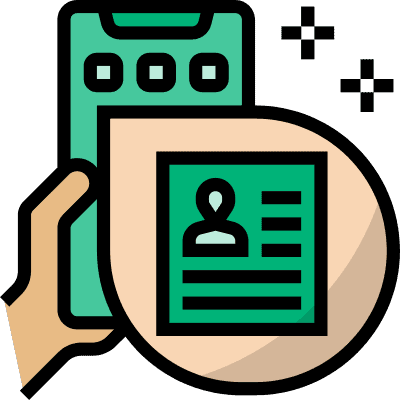
- Choose Authentic Photos: Use clear, recent photos that genuinely represent you. Include a mix of solo shots and pictures showcasing your hobbies and interests. Avoid overly edited or outdated photos, as they can mislead people’s expectations. Authentic photos help potential matches get a real sense of who you are and what you like.
- Write an Honest Bio: Share a bit about yourself in a sincere and engaging way. Talk about your interests, values, and what you’re looking for in a romantic partner. Don’t use generic statements, and be super specific about your interests and what makes you unique. This approach makes your profile more memorable and relatable, helping to attract people who genuinely click with you.
- Use App Prompts Effectively: Lots of dating apps offer prompts to help you share more about yourself. Use these to give potential matches a glimpse into your personality and what you value. This can be a great way to start convos and find common ground. Prompts like “My deal breakers are…” or “One thing I can not live without…” can reveal a lot about your interests and lifestyle, making it easier for others to see if they are a good match for you.
- Be Honest and Avoid Misleading Info: Honesty is so important in creating a genuine profile. Avoid exaggerating your achievements or pretending to be someone you’re not. Authenticity builds trust and lays a solid foundation for any potential relationship. The ultimate goal is to attract people who like you for who you really are, not some fabricated version of yourself.
Participating in Substantial Conversations
Having meaningful conversations will build stronger connections and reveal just how compatible you are with a match, so follow the tips below:
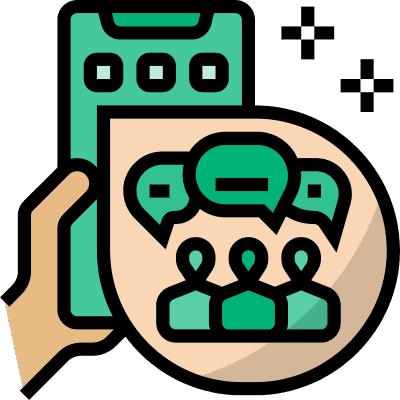
- Ask Open-Ended Questions: Instead of sticking to yes/no questions, ask open-ended ones that encourage more detailed responses. Questions about hobbies, goals, and values can lead to more engaging and insightful discussions. This approach not only helps you learn more about the other person but also shows that you’re genuinely interested in getting to know them.
- Be an Active Listener: Show genuine interest in what your match is saying. Listen attentively, ask follow-up questions, and share your own experiences in response. This demonstrates that you value their input and are interested in getting to know them better. Active listening also involves being present in the convo and avoiding distractions (like looking for other matches on the dating app while you’re chatting with one).
- Stay Positive and Open-Minded: Approach conversations with a positive attitude and an open mind. Even if a match doesn’t seem like a perfect fit initially, substantial dialogue can reveal unexpected commonalities and potential for a connection. Try to not jump to conclusions based on first impressions and give each conversation a fair chance.
- Share Personal Stories and Experiences: Sharing personal stories and experiences can make conversations more engaging and help build a stronger connection. Talk about a memorable event, a challenge you overcame, or a passion project. These stories provide depth and context, making it easier for your match to relate to you on a personal level.
Taking Interactions from Online to Offline
Eventually, you’re gonna have to take it offline if you want to actually meet the person you’ve been chatting with!
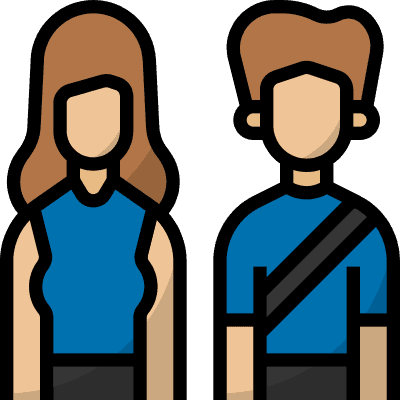
- Suggest a Video Call: Before meeting in person, consider having a video call. This can help establish a comfort level and ensure both parties are genuinely interested. It’s also a safer way to get to know someone better before an in-person meeting. Video calls can help you gauge chemistry and compatibility in a way that text-based conversations cannot.
- Plan Safe and Comfortable First Dates: When you decide to meet in person, choose public places and activities that allow for easy conversation. Coffee shops, parks, or casual restaurants are solid options. These settings provide a relaxed environment where you can focus on getting to know each other without the pressure of a formal date.
- Set Realistic Expectations: Go in knowing that not every date will turn into a long-term relationship. Approach each meeting with an open mind and enjoy the process of getting to know someone new. This mindset lessens pressure and allows for more genuine interactions. It’s important to keep an open mind and be patient as you navigate the dating process.
- Follow Up After the Date: After meeting in person, follow up with a message to express your interest or thank them for the time spent together. This simple gesture can reinforce your connection and keep the communication going. Whether you felt a strong connection or not, courteous follow-up messages show respect and interest!
When to Get Professional Help
Think you may have a dating app addiction? Here are the signs that it might be time to talk to a professional, the types of therapy or counseling available, and support groups and resources.
Signs That Addiction is Severely Impacting Life
It’s important to identify when dating app usage transitions from a healthy activity to a problematic one. Here are the warning signs that suggest dating app addiction is affecting your life in a negative way:
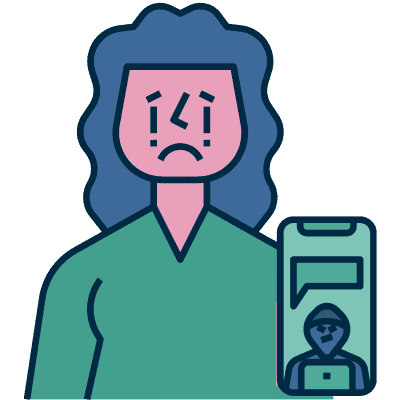
- Neglecting Responsibilities: If you find yourself missing work, school, or social events because you are preoccupied with dating apps, this is a major red flag. Consistently choosing app use over real-world responsibilities indicates a loss of control over your behavior.
- Emotional Distress: Feelings of anxiety, depression, or worthlessness after using dating apps can signify that they are negatively impacting your mental health. Regular rejection, ghosting, and superficial interactions can erode self-esteem and lead to emotional turmoil.
- Compulsive Use: When you feel unable to control your app usage or constantly check for matches and messages to the detriment of other activities, it’s a sign of compulsive behavior. This constant need to be online can interfere with daily functioning and personal relationships.
- Social Withdrawal: Preferring online interactions over face-to-face ones and withdrawing from real-life social situations can indicate a problematic reliance on dating apps. This withdrawal can exacerbate feelings of loneliness and isolation.
Types of Therapy or Counseling That Can Help
Several therapeutic approaches can address dating app addiction. Here are the most common types of therapy that will be beneficial:

- Cognitive Behavioral Therapy (CBT): CBT is effective in addressing the thought patterns that drive addictive behaviors. It helps individuals identify and change negative thoughts and behaviors associated with their dating app use. This type of therapy focuses on developing healthier ways to cope with triggers and stressors.
- Dialectical Behavior Therapy (DBT): Originally developed for borderline personality disorder, DBT is also useful for treating addiction. It combines cognitive-behavioral techniques with mindfulness practices to help individuals manage emotions and reduce impulsive behaviors.
- Group Therapy: Participating in group therapy can provide support to others experiencing similar issues. Group settings foster a sense of community and shared understanding, which can be incredibly beneficial for recovery. Groups led by licensed therapists ensure that discussions remain focused and productive.
- Individual Counseling: One-on-one sessions with a licensed therapist can provide personalized support and strategies tailored to your specific situation. This can be particularly helpful for addressing underlying issues such as social anxiety or low self-esteem that contribute to compulsive dating app use.
Support Groups and Resources
Support groups and resources for additional help and community support are available for anyone struggling with dating app addiction—the following are solid options for those seeking help:
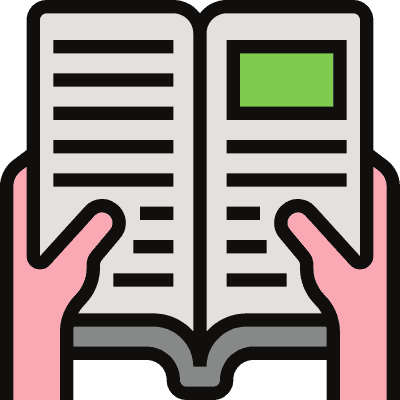
- SMART Recovery: This is a science-based addiction recovery program that provides free self-help meetings. Its focus is on building and maintaining motivation, coping with urges, managing thoughts and behaviors, and leading a balanced life.
- Therapy Tribe: A free online support community that offers various groups focused on mental health, including those dealing with addiction.
- SAMHSA’s National Helpline: The Substance Abuse and Mental Health Services Administration (SAMHSA) offers a confidential, free, 24/7 information service for individuals facing mental health issues. They can be reached at 1-800-662-HELP (4357) and provide referrals to local treatment facilities and support groups.
- BetterHelp: An online counseling service that connects you with licensed therapists via chat, video, or phone. They offer flexible, affordable therapy options.
- Mindful Care / MindFit: This service offers mental health crisis support and therapy sessions, focusing on mindfulness and emotional well-being.
Recognizing when you need to get professional help and taking steps to find it will make a difference if you are struggling with dating app addiction. With the right support and resources, you can regain control and improve your overall mental health and quality of life!
The Future of Dating Apps and User Well-being
Yes, daters are responsible for their own app usage, but it wouldn’t hurt if the platforms themselves contributed to users’ mental and emotional well-being! App developers are in a unique position to create and promote a healthier online dating environment. How? Well, they could incorporate wellness features, for starters. Let’s take a look at the responsibilities developers have, as well as helpful features and the importance of balancing the tech with human connection.
Responsibility of App Developers
Developers have a duty to create platforms that prioritize user well-being and safety. This responsibility extends to making sure that their apps do not promote addictive behaviors and that users have a good experience.
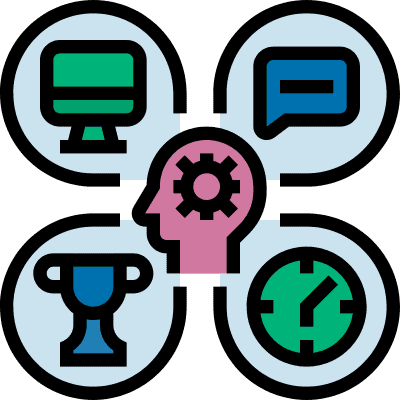
- Ethical Design Practices: Developers should incorporate ethical design principles that discourage addictive use. This includes avoiding features that create compulsive behaviors, like unlimited searching or intermittent rewards, which are commonly used to keep users engaged for longer periods.
- User Privacy and Security: Guaranteeing strong privacy and security measures is important, too! Users need to feel safe sharing personal info on dating platforms. Developers have to implement stringent data protection protocols to prevent breaches and misuse of data.
- Support and Resources: Providing users with access to mental health resources and support within the app can make a big difference. This could include links to counseling services, helplines, or educational content on healthy dating practices.
Potential for Built-In Usage Limits and Wellness Features
To promote a healthier usage pattern, dating apps can incorporate several wellness features designed to help users manage their time and interactions better.
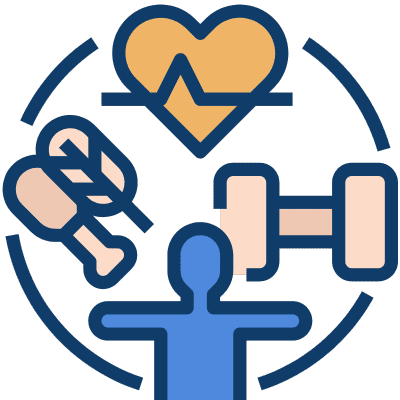
- Usage Limits: Implementing features that allow users to set daily or weekly limits on app usage can help prevent overuse. Notifications can remind users when they are approaching their set limits, encouraging them to take breaks.
- Wellness Checks: Regular wellness checks that prompt users to assess their mental and emotional state can be beneficial. These prompts can encourage users to take a step back and reflect on their feelings and behaviors related to the app.
- Mindfulness and Relaxation Tools: Integrating mindfulness exercises or relaxation tools within the app can provide users with ways to manage stress and anxiety. This can include guided meditations, breathing exercises, or tips on maintaining a healthy digital balance.
- Quality Over Quantity: Encouraging users to focus on the quality of their interactions rather than the quantity of matches can create more meaningful connections. Features that highlight compatibility based on shared values and interests can promote better engagements.
Balancing Technology and Human Connection
How can you balance the many benefits of technology with real-world connections to maintain mental and emotional well-being? Look below!
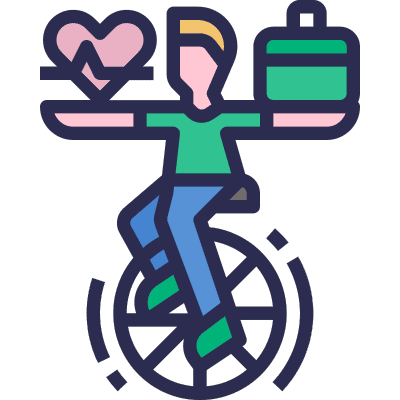
- Promoting Offline Meetings: Encouraging users to take their interactions offline after a reasonable amount of online communication can help build stronger connections. This decreases the risk of prolonged virtual interactions that may not translate into real-world chemistry.
- Facilitating Safe Meetings: Providing tips and guidelines for safe in-person meetings can reassure users and promote healthy offline interactions. This includes advice on choosing public places, telling friends about the date, and setting boundaries.
- Building Real Relationships: Apps can include features that help users maintain and nurture real-world relationships. This might involve reminders to follow up after a date or tips on keeping the chat going off the app.
- Encouraging Digital Detoxes: Periodic digital detox challenges or app-free days can be promoted within the app to encourage users to disconnect and engage more with their offline lives. These initiatives can help users reset and have a healthier relationship with technology.
Balancing Act: Dating Apps Should Not Dominate Your Life
Dating apps are such a great tool for meeting new people, but it’s easy to get carried away! Watch out for signs of addiction, like spending too much time on them or neglecting your actual real-life responsibilities and relationships. Set boundaries, focus on quality connections, and don’t forget to take breaks. If managing your usage feels like it’s getting out of hand, you should definitely reach out for professional support.
When you balance your dating app use and prioritize real-life interactions, you can have the best of both worlds. If managing your app time becomes a problem, there is help available by reaching out to us at DatingApps.com or reach out for professional support.
Don’t forget that IRL connections are irreplaceable, so when you do match with someone you click with, take it offline when you feel comfortable doing so! And doing your usual offline things can help you meet people in more organic settings as well—building strong, real-life relationships is super important for your emotional and social health.
